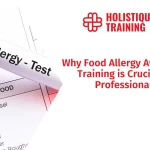This advanced training course provides a comprehensive roadmap for poultry professionals to transition towards sustainable, antibiotic-free production while maintaining flock health, feed efficiency, and product quality. With global concerns about antimicrobial resistance (AMR) and rising consumer demand for healthier products, the course explores cutting-edge nutritional strategies, feed digestibility techniques, and value-added egg enrichment practices.
Participants will engage with the latest scientific knowledge, real-world case studies, and practical tools to design antibiotic alternatives, optimise feed formulations, and align production goals with market opportunities. The program concludes with the development of a project plan tailored to participants’ operational needs.
By the end of this course, participants will be able to:
- Understand the global challenge of antimicrobial resistance (AMR) and its implications for poultry production.
- Evaluate and apply alternatives to in-feed antibiotics through holistic nutritional strategies.
- Master advanced techniques for feed digestibility and nutrient utilisation.
- Design value-added egg production systems that meet consumer demands.
- Implement sustainable, data-driven practices to enhance productivity and profitability.
This course is ideal for:
- Poultry nutritionists and veterinarians.
- Feed mill and farm managers.
- Researchers and technical consultants in animal health.
- Agribusiness professionals focused on sustainable production.
- Policy makers and regulators in livestock and food security.
The course uses expert-led presentations, interactive discussions, and detailed case study reviews. Participants will engage with practical examples, evaluate data, and design their own strategies for antibiotic reduction and value-added production. The program concludes with a final project to translate course knowledge into actionable plans.
Day 5 of each course is reserved for a Q&A session, which may occur off-site. For 10-day courses, this also applies to day 10
Section 1: The Poultry Industry and the Global Antibiotic Resistance Challenge
- Defining the Problem: Understanding the critical role of poultry production in the emergence and spread of AMR; exploring the pathways from the gut to the environment.
- Global Context and Purpose: Reviewing regulations and consumer demands driving antibiotic reduction; defining ABF and NAE systems.
- The Economic and Health Impact: Analysing the economic consequences of production diseases in ABF systems and the long-term risks of AMR to public health.
- Benchmarking Success: Case studies from leading poultry-producing companies and countries.
Section 2: Evaluating Alternatives to In-Feed Antibiotics
- Beyond Symptoms to Causes: Addressing root causes of dysbiosis and intestinal inflammation.
- Cataloguing Alternatives:
- Probiotics & Direct-Fed Microbials.
- Prebiotics & Phytogenics.
- Organic Acids & Essential Oils.
- Zinc & Copper Alternatives.
- Synergistic Strategies: Combining alternatives for a holistic gut health approach.
Section 3: The Roadmap to Feed Efficiency and Digestibility
- The DMAIC of Feed Formulation: Define, Measure, Analyse, Improve, Control.
- Mastering Digestibility Techniques:
- In vitro methods simulating digestion.
- In vivo feeding trials and collection methods.
- Interpreting results: AME, digestibility coefficients, local ingredient valuation.
Section 4: Designing Value-Added Egg Production Systems
- The 'Value-Stream' of an Egg: From hen nutrition to consumer purchase; reducing waste.
- The Science of Egg Quality: Advanced parameters; yolk pigmentation and nutrient transfer.
- Strategic Enrichment Plans: Antioxidants, Omega-3s, Vitamins.
- Market Alignment: Matching consumer demands with premium market opportunities.
Section 5: Implementation and Commercial Application
- Creating a Change-Conscious Operation: Protocols for staff and feed mill practices.
- Monitoring Performance & Mitigating Risk: KPIs for flock health, productivity, egg quality.
- Data-Driven Decision Making: Using performance data for validation and economic justification.
- Final Project: Drafting a project charter (e.g., “Antibiotic-Free Protocol Using Local Plants” or “Launching Antioxidant-Rich Eggs”).
Upon successful completion of this training course, delegates will be awarded a Holistique Training Certificate of Completion. For those who attend and complete the online training course, a Holistique Training e-Certificate will be provided.
Holistique Training Certificates are accredited by the British Accreditation Council (BAC) and The CPD Certification Service (CPD), and are certified under ISO 9001, ISO 21001, and ISO 29993 standards.
CPD credits for this course are granted by our Certificates and will be reflected on the Holistique Training Certificate of Completion. In accordance with the standards of The CPD Certification Service, one CPD credit is awarded per hour of course attendance. A maximum of 50 CPD credits can be claimed for any single course we currently offer.
- Course Code IND10 - 112
- Course Format Classroom, Online,
- Duration 5 days








